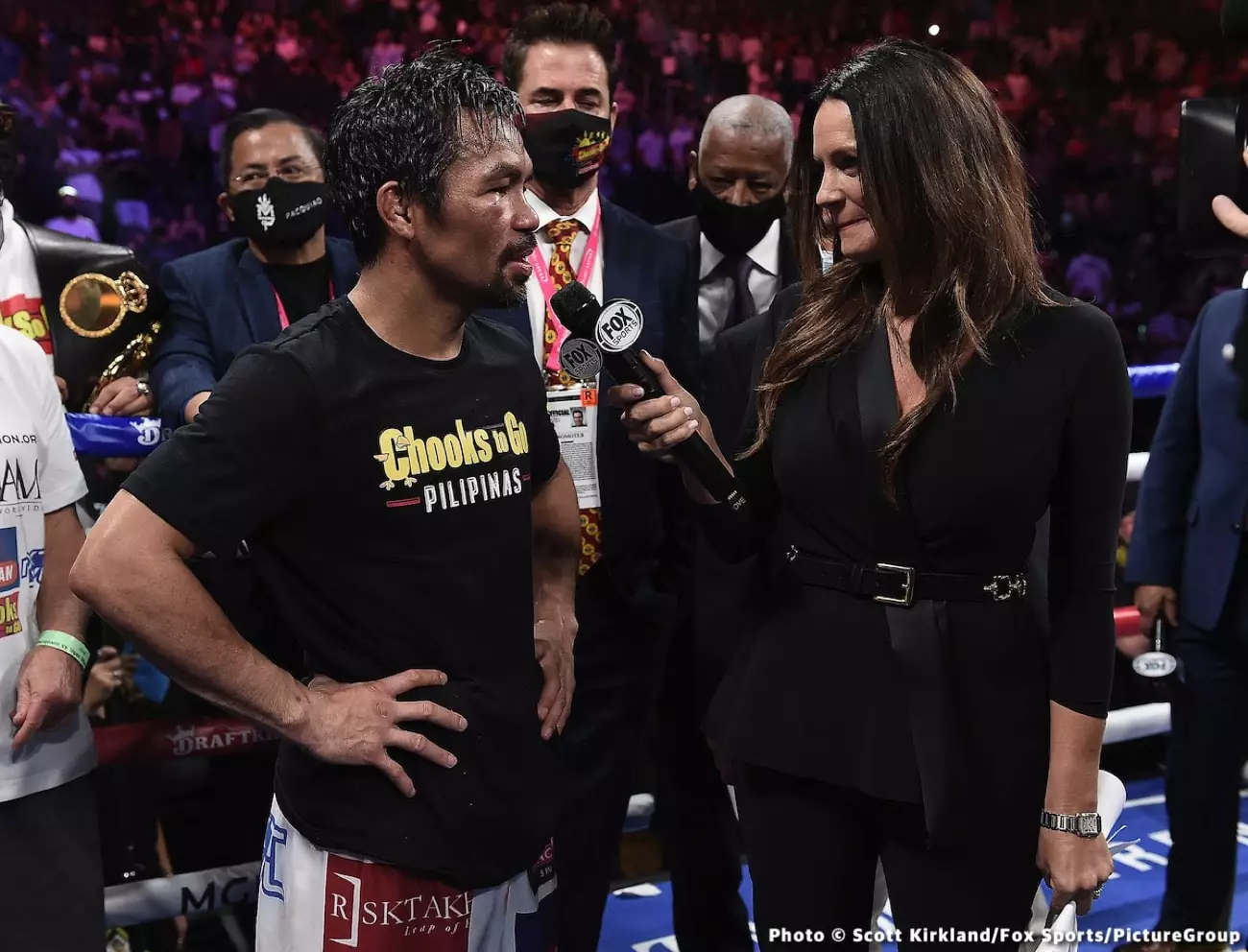Fifteen years ago, a fight unfolded at the iconic Cowboys Stadium that would forever etch itself into boxing history—not for its thrill and intensity, but for its cloud of controversy. Manny Pacquiao versus Joshua Clottey should have been a spectacular meeting of champions. Pacquiao, who was nearing the zenith of his career, had a record that boasted 50 wins, 3 losses, and 2 draws, with a reputation for mercilessly dismantling opponents. Clottey, meanwhile, entered the ring with a commendable record of 35 wins and only 3 losses. The world of boxing was bracing itself for a thrilling encounter, with fans eagerly anticipating the heavyweight clash between two titans of the sport.
However, what transpired was anything but spectacular. Instead of a high-stakes war, the fight transformed into a one-sided affair dubbed “The Event,” leaving spectators bewildered. Not just because of Pacquiao’s brilliance but due to Clottey’s inexplicable passivity—a fighter known for his resilience and heart seemed to shy away from engaging in the very sport he mastered.
A Lack of Engagement: The Controversy Grows
As the rounds ticked away, the fight quickly became a subject of scorn, with many boxing analysts and fans denouncing its lack of action. Clottey barely threw punches, resulting in a dominant decision victory for Pacquiao, with judges scoring it 120-108, 119-109, and 119-109 in favor of the Filipino hero. Viewers who had clamored for the excitement of a great matchup were forced to sit through what felt more like a public exhibition than a professional contest.
The echoes of discontent grew louder as theories emerged about Clottey’s bizarre lack of aggression. Whispers of a potential “fix” began to circulate, suggesting that something deeper was at play—a narrative fueled by Clottey’s own subsequent revelations about the manipulative nature of his managerial situation.
The Shadows of Exploitation
Years after the fight, Clottey finally broke his silence regarding his disillusionment with the sport and the financial entanglements that led to his poor performance. During a 2023 interview, he unveiled a startling confession: he had effectively “taken a dive” against Pacquiao, not out of cowardice, but in response to being systemically robbed by his own manager, Vinny Scolpino. Clottey claimed that his manager had settled for significantly less pay-per-view revenue than he was entitled to, leaving him feeling frustrated and powerless.
His words illuminated a dark underbelly of boxing that often remains obscured from casual viewers: the mismanagement and exploitation that many fighters endure behind the scenes. Clottey stated that he was supposed to earn $2 million for the fight, but, instead, his manager negotiated a pitiful split, leaving Clottey with merely a fraction of his deserved payday. “I felt like I was fighting for free,” he lamented, expressing his disappointment at taking part in a fight that was supposed to be his career highlight.
The Ethos of a Fighter
Clottey’s story transcends the ring; it speaks to a universal struggle against exploitation in professional sports. Many athletes grapple with the tension between their passion for the sport and the harsh realities of financial agreements that benefit promoters and managers more than the fighters themselves. The boxing world is rife with anecdotes of similar situations, where the warriors who entertain us are left fighting battles outside the ring that are often more pernicious than any opponent they face.
The question remains, what potential was squandered that night in Dallas? Had Clottey entered the fight fully committed and motivated, the outcome could have mirrored a different narrative—one where he pushed Pacquiao to his limits. “Who knows what would have happened?” fans continue to ponder. Clottey’s regret and feelings of betrayal linger—an ever-present reminder of the sacrifices made by fighters who sometimes aren’t granted the recognition—or the pay—they deserve.
A Legacy Marked by Silence
As time passes, the echoes of Clottey’s confessions are likely to resonate within the boxing community. Fighters like him are encouraged to speak out, to shed light on the murky waters of sports management and the impact it has on their legacies. The idea of a fighter coasting through a marquee bout is frustrating, but it’s also emblematic of a broader issue that needs addressing.
Looking back, the Pacquiao vs. Clottey match should be acknowledged not only for the spectacle that it was supposed to represent but also for the uncomfortable truths it unveiled about the business of boxing. Clottey has lamented that he should have fought harder, but it’s crucial to remember the systemic issues that led him to approach that fateful night with a compromised spirit. In a sport celebrated for bravery, the true bravery might lie in telling one’s story.

